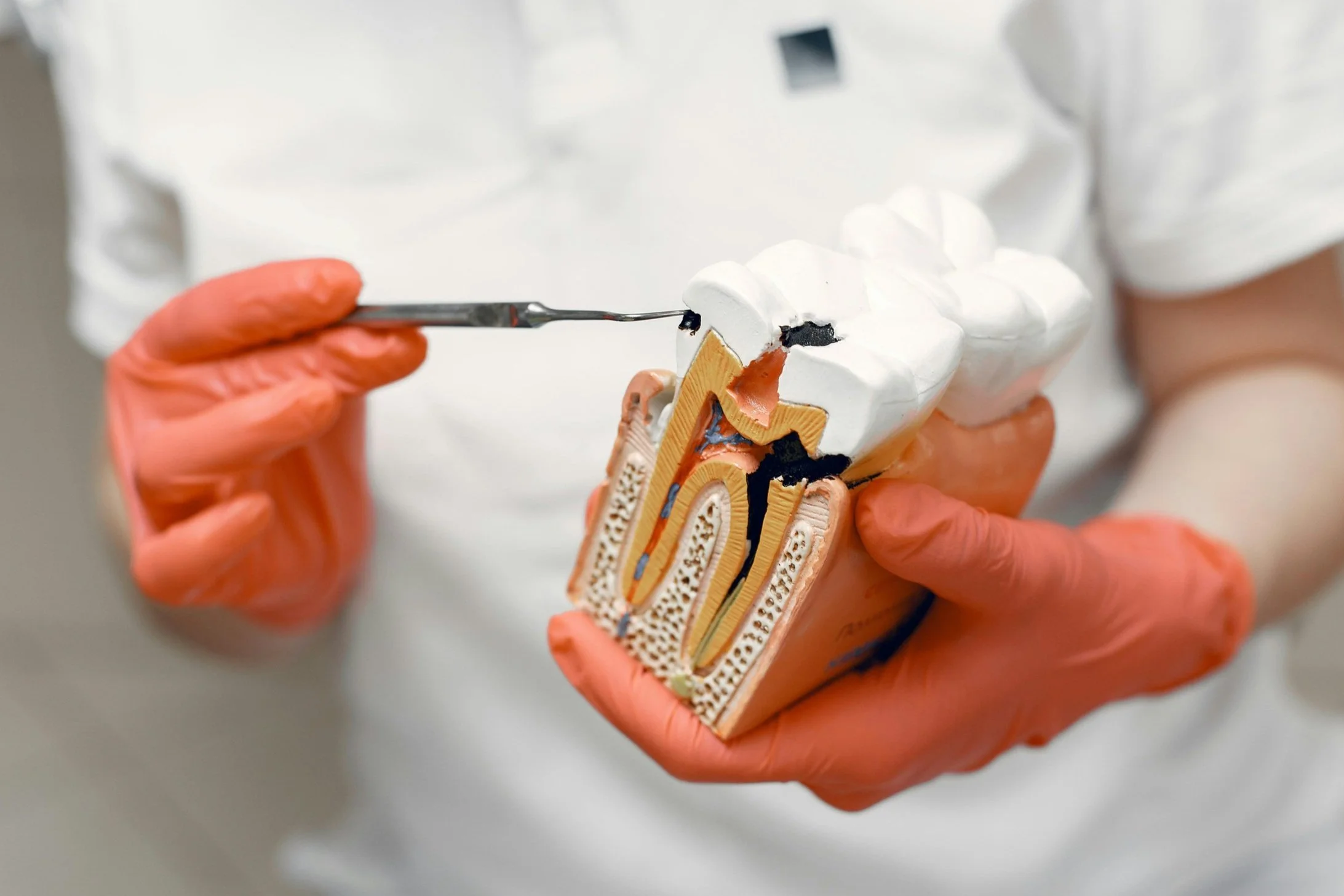
Pain Management - Root Canal Treatment
Root Canal Treatment - Restore Function and Comfort
A root canal treatment is a highly effective procedure to save a severely decayed or infected tooth while relieving dental pain. At Dental 32 Rimbayu, we use advanced techniques to ensure a comfortable and stress-free experience.
When Do You Need a Root Canal Treatment?
You may require a root canal if you experience:
FAQs
-
The procedure is done under local anesthesia, so most patients do not feel pain during the procedure. You may experience slight pressure or movement, but the treatment itself should be comfortable. Mild soreness or sensitivity after the procedure is normal and can usually be managed with over-the-counter pain relief.
-
The duration of root canal treatment varies based on factors such as the tooth's location, the extent of infection, and the complexity of the root canal system. Most cases require one to two visits, with each appointment lasting 60 to 90 minutes on average. However, teeth with multiple canals, severe infections, or complications may require additional visits to ensure proper cleaning and disinfection before sealing the tooth.
-
Diagnosis – We assess the tooth and take X-rays to determine the extent of the damage.
Cleaning – Local anesthesia is applied to ensure a pain-free procedure, and the infected pulp is removed.
Filling & Sealing – The root canals are disinfected, shaped, and filled to prevent reinfection.
Restoration – A filling or dental crown will be placed to protect the treated tooth and restore its function. A crown is often recommended for teeth that have significant structural loss or are more prone to fracture.
-
If left untreated, the infection can spread, leading to severe pain, abscess formation, and possible tooth loss. In some cases, it may even affect overall health.
-
With proper care, a root canal-treated tooth can last a lifetime. A dental crown is often recommended to protect the tooth after treatment.
-
Proper aftercare is essential for healing and preventing complications. Follow your dentist’s instructions, which typically include:
Managing discomfort – Mild soreness is normal and can be managed with over-the counter pain relievers or prescribed medication if necessary.
Eating carefully – Avoid chewing on the treated tooth until it is fully restored with a permanent filling or crown. Stick to soft foods and avoid hard, sticky, or crunchy foods that could damage the temporary filling.
Maintaining oral hygiene – Continue brushing and flossing as usual, but be gentle around the treated tooth. Rinse with a mild saltwater solution if recommended by your dentist.
Attending follow-up visits – A final restoration, usually a crown, is necessary to protect the tooth and restore function. Follow up with your dentist to complete the treatment.

